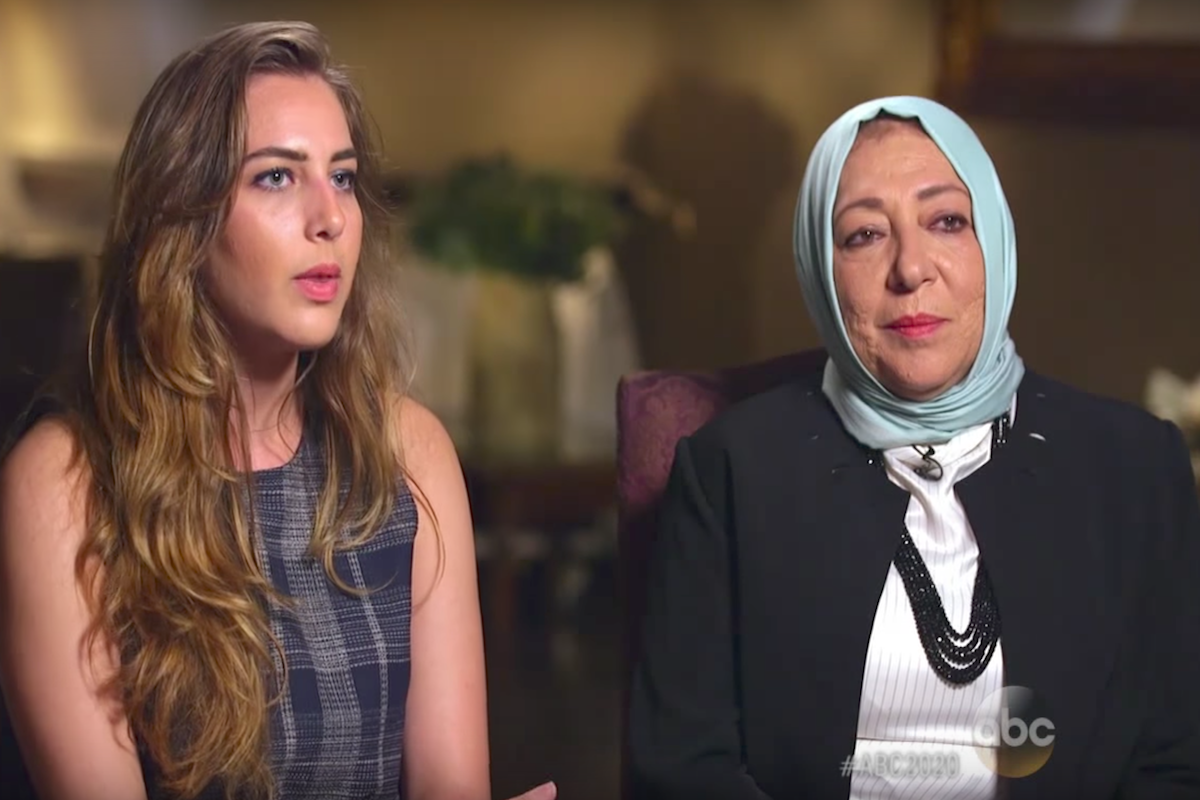The murder of Syrian mother-daughter activists Halla and Orouba Barakat in İstanbul highlights a growing fear among foreign political dissidents, especially women, that they aren’t safe in Turkey, reported the New York Times and added that “It’s not hard for neighboring regimes with political adversaries inside Turkey to hire assassins, security analysts say.”
The Barakats were found dead in their apartment by police who had been alerted by a neighbour, and distant cousin Ahmed Barakat later admitted the crime in court.
Orouba Barakat had been working on projects in support of the Syrian opposition to Assad, the newspaper said, and investigating extrajudicial killings in Assad’s prisons. Her daughter Halla, meanwhile, worked as a journalist for Turkish state and Syrian opposition media. The pair’s constant activism on behalf of victims of the regime and the Islamic State in Iraq and the Levant (ISIL) had led to many death threats, Orouba’s younger brother Maen Barakat said.
The report underlined that Turkey has historically served as a safe zone in the crossroads of Asian and European conflicts where dissidents like Marxist revolutionary Leon Trotsky and Iran’s supreme leader Ruhollah Khomeini once sought refuge. But as Turkey navigates its relationship with autocratic regimes, foreign dissidents are increasingly at risk of the wavering loyalties of the Turkish state.
“Turkey had a distance, a balanced position in bloody conflicts in the past. But it’s part of the conflict in Syria. Many Syrian dissidents, mostly high profile men, have been killed in Turkey,” Gökhan Bacık, a Turkish professor of the Middle East at Palacky University in the Czech Republic, told the New York Times’ Women In The World section.
The paper reported that “Chechen, Uzbek and Iranian dissidents have also been gunned down on İstanbul streets in the last several years. Delbar Tavakoli, 45, escaped to Turkey during the purge after the 2009 Green Revolution in Iran. She was a journalist and political dissident who applied for asylum to a third country. In the nine months she spent in Kütahya, Turkey, as a refugee, Tavakoli said she was harassed and interrogated by Turkish intelligence members whom she believes were working with the Iranian regime. When she was accepted to France as an asylee, Turkey refused to let her go. Tavakoli went on hunger strike as French officials stepped in to negotiate her exit from Turkey. On the eleventh day of her hunger strike, Tavakoli was able to fly to France.”
“It’s not a safe place for refugees, especially political ones. I haven’t seen my family in nine years, and many Iranian dissidents who can’t return to Iran meet their families in Turkey. I don’t dare go back,” Tavakoli told to the New York Times. But Turkish officials insist that Turkey’s safe for refugees and these are isolated cases.
At least five Syrian men have been killed under suspicious circumstances in Turkey since the war in Syria began in 2011, according to local Turkish and international media reports. Gökhan Bacık said Turkey wouldn’t admit that it’s not safe for Syrians — it has invested too heavily in Syria. He adds that Turkey’s geography of porous borders with eight neighboring countries, such as Iraq and Syria embroiled in war, also limits the Turkish government’s security capacity. Unless the US or other states provide Turkey with necessary intelligence, Turkey is unable to protect every refugee or dissident, he said. For Syrians to be safe, for example, they must depend on one of the Syrian political groups to protect them from a rival group, Bacık added.
According to the report by the New York Times, the Barakat family is an educated political family that has historically fought against the dictatorship of the Assad family, which has ruled Syria for half a century. They have lost many members to various uprisings and the recent war, but few of those who have been killed were women — until now.
The Barakat women were loyal to the FSA, but alleged corruption within the National Coalition of Syrian Revolution and Opposition Forces, the interim opposition government in exile negotiating with the Assad regime, prompted Orouba Barakat to expose various members on social media.
Maen Barakat said that his sister, in an August 9 WhatsApp message sent to a Syrian group, accused one member in İstanbul of selling “100,000 fake passports” to Syrians who bought one for $400 each. The Turkish government has criminalized passports issued by the Syrian opposition and has imprisoned and deported Syrians who carry one. Orouba Barakat subsequently withdrew from the coalition. She was one of several activist Syrians in İstanbul openly criticizing the coalition of corruption. Orouba Barakat was also investigating extrajudicial killings in Assad’s prisons, according to friends and family. The last time she visited Syria was a trip she took to Idlib in 2015.
“She was also working on a secret project about everyone who conspired against the revolution, and I don’t know where she was getting her information but she was gathering evidence and documents,” said Maen. Police have her laptop, but her documents and data are missing after the murder. Yet their gold, jewelry and money was left untouched in their apartment, Maen said.
Halla Barakat worked as a TV journalist in English on the Turkish broadcaster TRT World as well as in Arabic on the Syrian opposition leaning Orient TV. She was the sole breadwinner in the family because her mother didn’t have a work permit in Turkey and focused on charity and special projects.
Maen said his sister had received death threats on social media and a few times on the telephone. ISIL had threatened the women after they spoke in defense of American activist Kayla Mueller, whom the extremist group killed in 2015 in Syria. The last threat against the women was several days before their death on Orouba’s cell phone. “Prepare yourself for being killed. Whoever talks about Bashar al Assad will be killed,” Maen said the man on the phone had told his sister.
Maen said he doesn’t know if the Turkish police are telling the family everything, and he was disappointed the US authorities hadn’t contacted the family to investigate American Halla Barakat’s murder. The State Department released a statement a day after the twin homicides, saying the US offered its condolences and would follow the Turkish investigation. The State Department didn’t respond to further inquiry.
When Americans are killed abroad, American authorities may open an investigation in collaboration with the State Department, but it’s on a case by case judgment, said Kadia Koroma, a spokeswoman for the Federal Bureau of Investigation in Washington D.C.
“Please be advised that our Legal Attaché office in Ankara, Turkey, offered FBI analysis and assistance to the Turkish National Police … who are investigating this homicide. The TNP respectfully declined the FBI’s assistance, as TNP is very capable of conducting a thorough and complete investigation,” Koroma wrote in an email to Women in the World. “Due to jurisdictional legalities, the (Turkish police) will continue to work this matter and provide updates to our Legal Attaché office in Ankara.”
According the New York Times’ report Turkish officials confirmed that they’re not working with American authorities.















